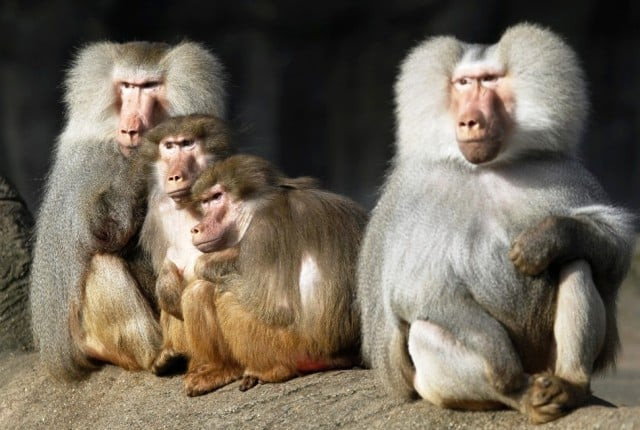High-ranking baboons are healthiest: Study
Alpha males are less likely to get sick and recover faster from injuries than those at the lower rungs of society.

After studying 27 years worth of data on baboons in Kenya, researchers found that alpha males were less likely to get sick and recovered faster from injuries than those at the lower rungs of society.
The findings were a surprise, since previous research has shown that high-ranking males face surging stress levels and often mate so regularly as to weaken their immune function.
The study authors believe that their research shows the type of stress faced by lower-ranking males -- chronic stress, old age, poorer physical condition -- might actually be behind the health differences in the two groups.
"In humans and animals, it has always been a big debate whether the stress of being on top is better or worse than the stress of being on the bottom," said lead researcher Beth Archie, a biologist at the University of Notre Dame.
"Our results suggest that, while animals in both positions experience stress, several factors that go along with high rank might serve to protect males from the negative effects of stress."
The data for the study in the Proceedings of the National Academy of Sciences came from records kept from 1982 to 2009 on 166 adult male baboons living in groups with one to 17 adult males, as well as other females.
Researchers studied the injuries sustained by the males, often incurred by fighting one another. They included slashes, puncture wounds, contusions, scrapes, limps, and one eye injury.
By charting how long it took for the different males to recover from their injuries, the research showed that high-ranking males healed faster than lower-status males.
But the data did not shed light on what drove the difference -- whether the baboons became high-ranking because of their superior immune systems or if the baboons' health got a boost from being at the top of society.
"Is one a society leader because of stronger immune function or vice versa?" asked George Gilchrist, program director in the National Science Foundation's Division of Biology, which funded the research.
Future research on whether changes in health tend to come before or after a change in rank could shed more light on the matter, the study said.
Co-authors on the study came from Princeton University; the Institute of Primate Research at the National Museums of Kenya in Nairobi; University of Nairobi and Duke University in North Carolina.



















COMMENTS
Comments are moderated and generally will be posted if they are on-topic and not abusive.
For more information, please see our Comments FAQ